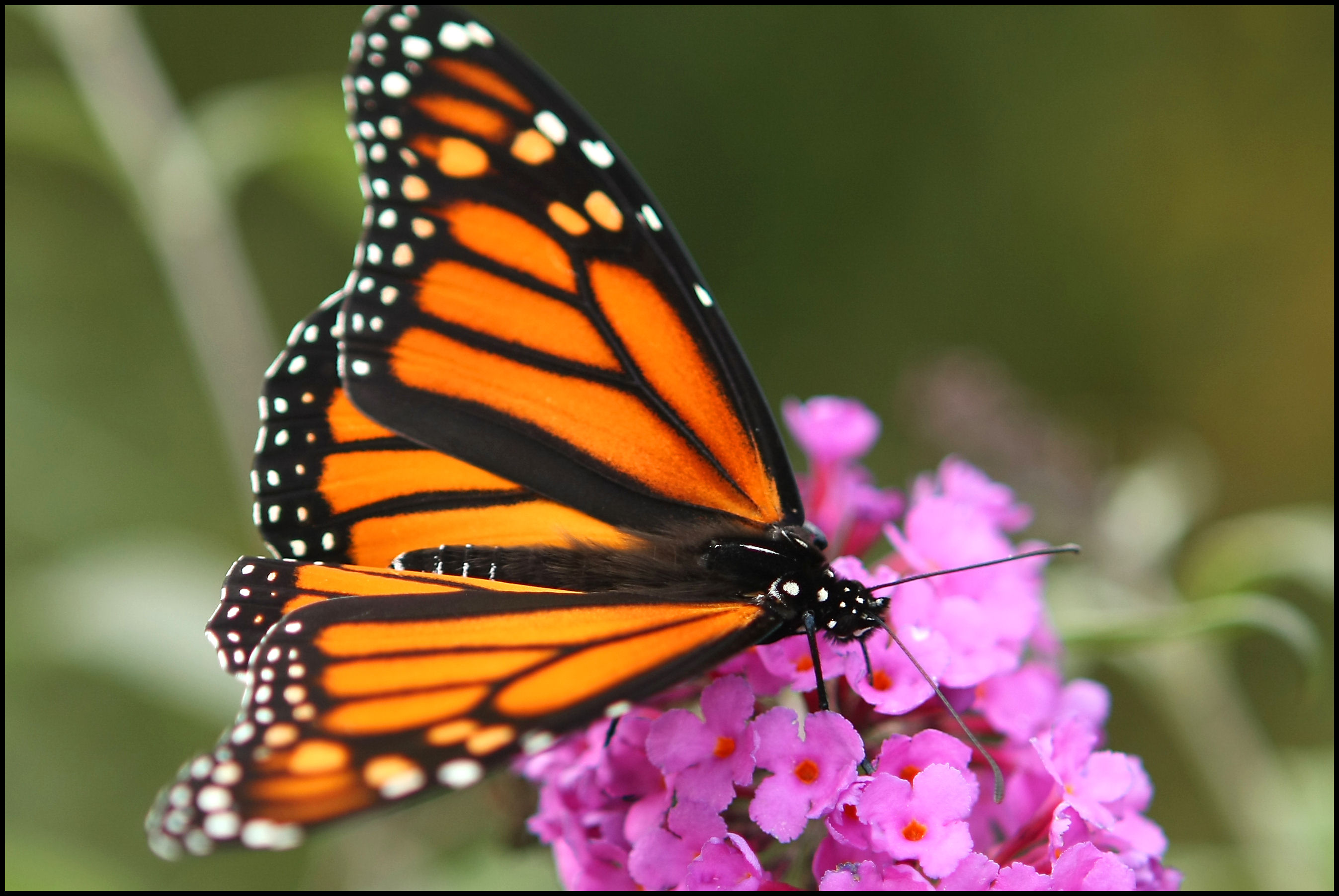By Nicole Tabit
Why are pollinators important?
Pollinators are key to sustaining our environment and facilitating plant reproduction. They support healthy ecosystems that support other life, and increase agricultural productivity. Pollinator populations, though, have been on the rapid decline in the recent past. This decline has been brought about largely by loss of good habitat for most pollinators. It also stems from from urban sprawl, and the use of pesticides and herbicides on milkweed plants.
One pollinator that has taken a large population hit in recent years is the monarch butterfly. Monarch butterflies rely on milkweed to lay their eggs on, and monarch caterpillars only eat the leaves of milkweed.
What can you do? Ohio is a priority area for migrating monarch butterflies. Fourth generation monarchs are hatched in Ohio in late summer, and are the generation that begins the cycle in the spring again, ensuring another generation of monarchs. One thing you can do in your own backyard to help monarch populations is to collect milkweed seed pods. When picking milkweed pods, it is suggested that disposable gloves be worn, as milkweed sap can be an irritant. Make sure you ask permission before picking seeds from private property, and leave a few pods wherever you pick for further spread of seeds.
ICollecting seed pods: It is best to collect seed pods when they are dried and a gray-brown color. The suggested season is the start of September to the end of October. If the center seam of the pod pushes open easily with pressure, it is ready to be picked. When harvesting the seeds, try to harvest the pods after the seeds turn black (they should not be white or tan), and before the ‘fluff’ in the pods causes the pods to burst open. Harvesting pods does not have any effect on established milkweed populations; in fact, planting these milkweed seeds will help ensure they continue to grow and even spread across Ohio. It is best to plant seeds in the fall or winter. The seeds need this time to stratisfy inorder to germinate in the spring. Frost won’t affect the root growth of new plants, since soil doesn’t freeze solid until much later in the winter, so your milkweed top growth might die in the winter, but the roots will grow, and you’ll be ahead when spring rolls around. Seeds will not germinate indoors unless refriderating, so it easiest to plant in the fall/winter. Milkweed does best in full sun.